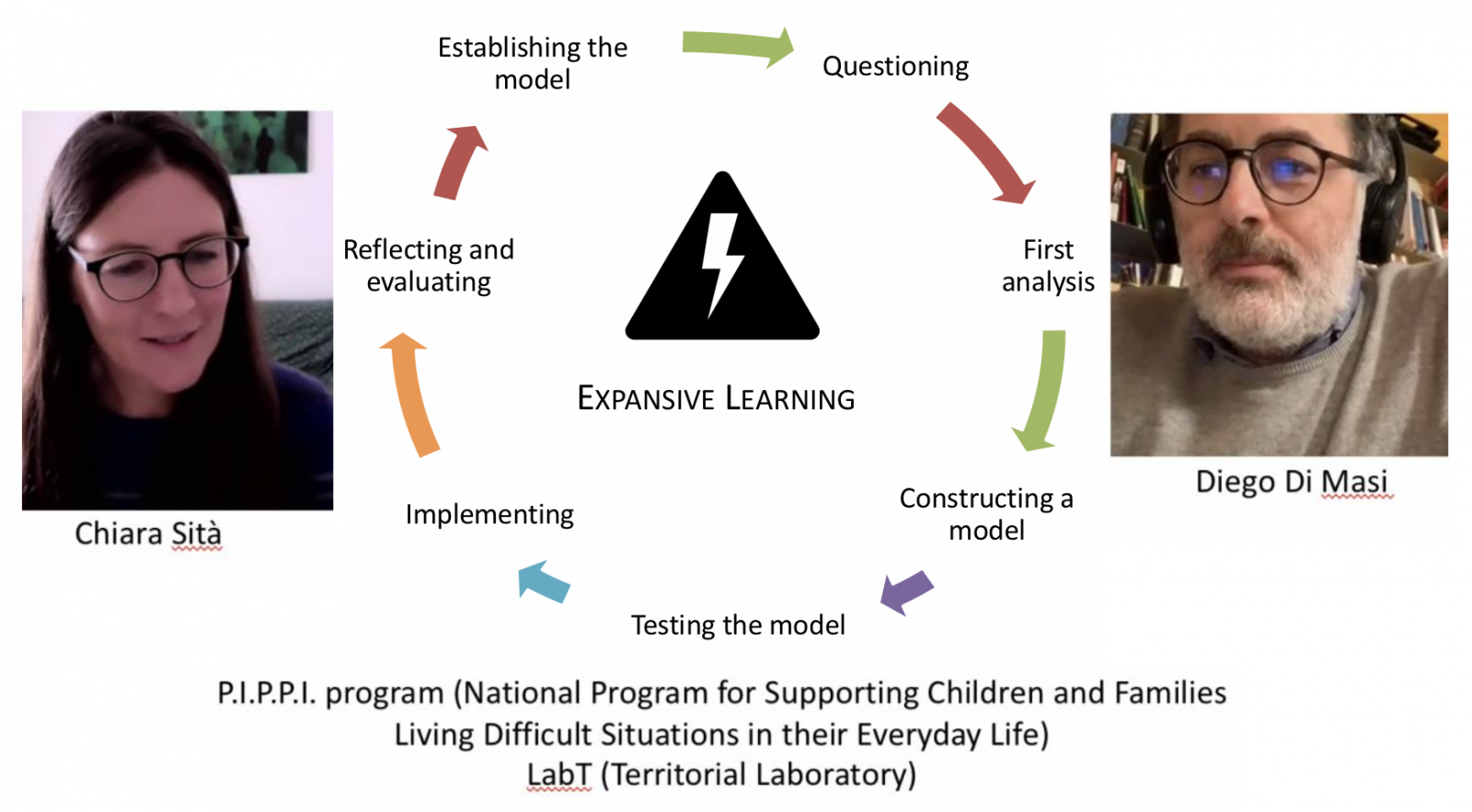RESET/CRADLE Online Seminar 1 – October 29, 2020
Abstract
The presentation is focused on the Italian experience of LabT (Territorial Laboratory). LabT is a collaborative space in which researchers and professionals working in child and family welfare and child protection design innovative actions to support vulnerable parents and children.
LabT is a multiprofessional context involving actors from different organizations and it is designed as a reflective space. Participants discuss starting from local data concerning the results of their intervention programs with children and families, and questioning their own professional practices as well as the support network they build. The discussion is facilitated by researchers and aimed to collaboratively construct a local project for improving their work.
The data we draw upon are notes and recordings from group discussions with professionals and informal helpers connected by a common engagement in child protection and child and family support in two different geographic areas in Northern and Central Italy. The group discussions involve social workers, healthcare professionals, teachers, school principals, social educators, foster families who interact on the outcomes of the P.I.P.P.I. program (National Program for Supporting Children and Families Living Difficult Situations in their Everyday Life) and trying to identify the main needs as well as strengths and weaknesses of their collective action towards vulnerable children and families.
We chose to use the lens of Cultural-Historical Activity Theory (Sannino & Engeström, 2017) to better understand the learning processes and outcomes in LabTs, seen as activity systems involved in qualitative change, driven by emerging contradictions. We are especially interested in discussing how the contrasting representations of vulnerable children and families and of the role of the local support network can be reconceptualized in an expanding learning perspective. This process is also leading us to question our function and positioning as researchers working with professionals in these activity systems and in their interaction with other activity systems, in order to enhance the transformative potential of LabTs.

